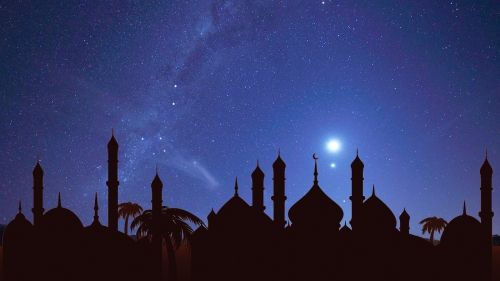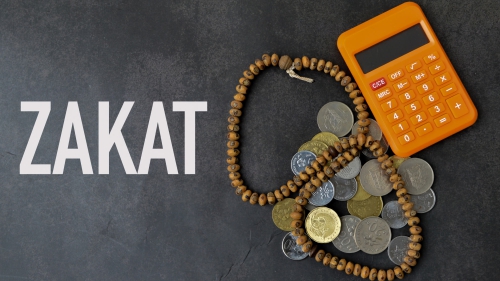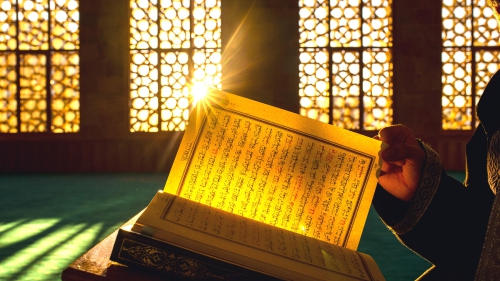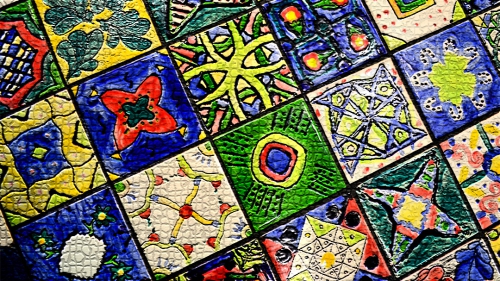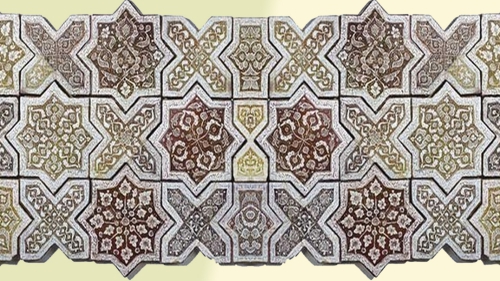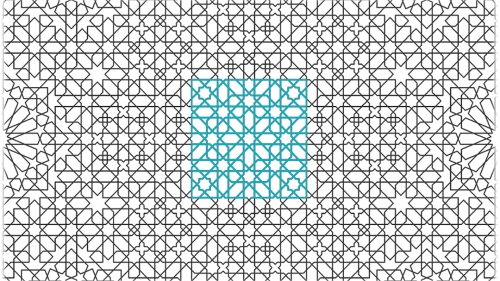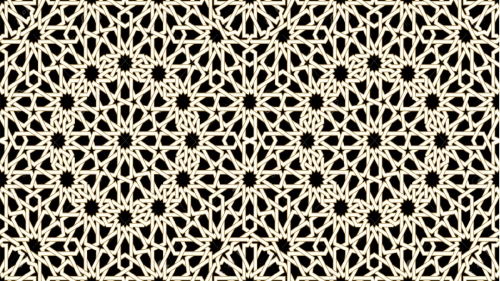Ramadan: Living the Quran
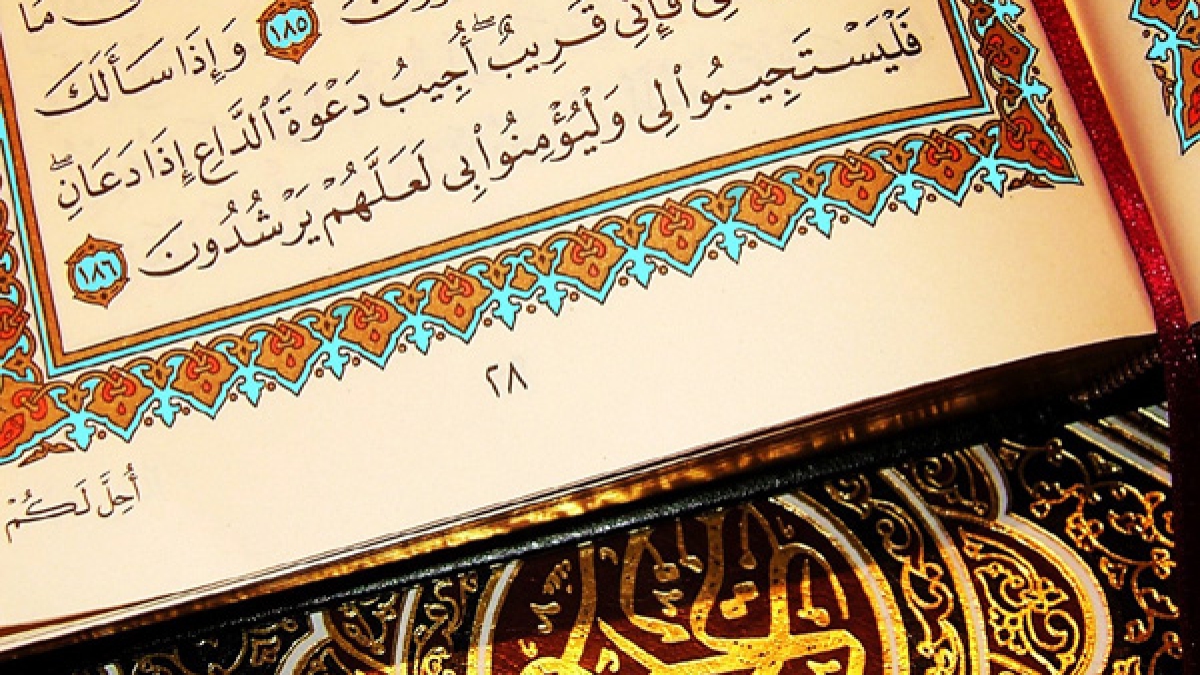
During Ramadan we celebrate the Qur'an. This is fitting owing to the close association between the month of fasting and the Qur'an. Allah mentions in the Qur'an, The month of Ramadan in which the Qur'an was revealed (2:185). Perhaps this association is connected to the fact that during the month we recite the sacred scripture as often as we can.
Reciting the Qur'an is a highly rewarded act of worship. The Prophet mentioned in this regard, "Whoever recites a single letter from the Qur'an will have a reward, and that reward will be multiplied tenfold. Do not say that "Alif-Lam-Mim" is a single letter. Rather, "Alif" is a distinct letter, "Lam" is a distinct letter, and "Mim" is a distinct letter."1Tirmidhi, 2910 One cannot begin to imagine the reward of a believer who recites the entire Qur'an in its entirety once, twice or thrice during the month of Ramadan.
The scholars of the early generations used to drop their other intellectual pursuits during Ramadan and devote themselves exclusively to the Qur'an. It is related that 'Umar would order Ubayy bin Ka'b and Tamim al-Dari to lead the people in prayer during Ramadan. They would recite two hundred verses in a single unit of pray (rakat), until some of the congregation would lean on canes owing to the length of the recitation. They would not disperse until just before Fajr.2Zayn al-Din Abu al-Faraj 'Abd al-Rahman bin Rajab al-Hanbali, Lata'if al-Ma'arif fima li Mawasim al-'Am min al-Wadha'if (Damascus: Dar Ibn Kathir, 1416/1996), 316 Some of the earlier generations of Muslims would complete the Qur'an every third night in Ramadan, others in seven, yet others in ten.3Ibid., 318
Ibn Rajab further relates:
The early Muslims would recite the Qur'an during prayer and at other times during Ramadan. Al-Aswad used to complete the Qur'an every other night during Ramadan. Al-Nakha'i would read at that rate during the last ten days specifically. During the balance of the month he would complete it every third night. Qatada would complete the Qur'an every seven days throughout the year, but during Ramadan every third night. During the last ten days of the month he would complete it every night. During Ramadan Imam Shafi'i would complete the Qur'an sixty times, all of them outside of prayer. Abu Hanifa would read at a similar pace. [...] Ibn 'Abd al-Hakam relates that when Ramadan began Imam Malik would turn away from teaching Hadith, scholarly circles and devote himself to reciting the Qur'an from the Mushaf. 'Abd al-Razzaq mentioned that Sufyan al-Thawri would leave off all other [non-obligatory] devotional acts during Ramadan and concentrate on reciting the Qur'an. 'Aisha, may Allah be pleased with her, would recite the Qur'an during the latter part of the night during Ramadan and not sleep until after the rising of the sun. When Ramadan started Zubayd al-Yami would bring out the Qur'ans and gather his associates together to recite them.4Ibid., 318-319
He adds:
Rather, the prohibition against completing the Qur'an in less than three days is against doing that constantly. As for exceptionally virtuous times such as the Month of Ramadan, especially the days during which the Night of Decrees (Layla al-Qadr) is sought out; or in especially virtuous places, such as Mecca, for those who are not permanent residents there, it is highly desirable to increase the rate of recitation to take advantage of the [blessed nature] of the time and place.5Ibid., 319
We relate these passages to give the reader a sense of the devotion those early generations had to the Qur'an -and those who have followed their example throughout the long generations during which the saga of Islam has unfolded on the earth.
They not only recited the Qur'an, they also studied it, served it, acted on its commandments and prohibitions and lived lives informed by the worldview that it presented. Part of their service to the Qur'an was their preservation of the Arabic language through the development of the various linguistic sciences of grammar, morphology, syntax, rhetoric, phonology, etymology, semantics and monumental works of lexicography. The work of the early Muslims in these areas stands as one of the greatest intellectual enterprises in human history.
Hence, the Qur'an was a source of their strength and they were elevated thereby. The Prophet stated, "Allah elevates by means of this Book (The Qur'an) nations and He debases others."6Muslim, 817 They were not elevated by the Qur'an in terms of worldly power and influence only. They were a spiritually enlightened community qualified by exalted manners and noble characteristics.
The Qur'an can be the source of our elevation. I have seen a glimpse of that myself. During my first stint as Imam of Masjid al-Islam in New Haven, Connecticut from 1987-1994, the community was committed to the Qur'an. During Ramadan we would do two Khatms of the Qur'an as a community, one during the Tarwih prayers and one during the late night Qiyam during the last ten nights of the month. Families would bring their infant children to sleep in a room adjoining the Musalla during the Qiyam.
We would complete the Qur'an in a Halaqa after Fajr on a regular basis. Young men, some of whom were struggling in "school," would join the circle and learn to recite the Qur'an in Arabic in two or three weeks. We would seek out the meanings and endeavor to understand and implement the commandments presented by the Book. As a result, the community was strong and cohesive. There is no denying that we had the same social ills present in other inner-city communities, but compared to others places they were minimal.
As we survey the current Muslim landscape we see in many places a gloomy picture. Divorces and other indices of social dysfunction are skyrocketing. Many individuals are struggling with faith crises. If we look at the connection to the Qur'an, both at a communal and an individual level, we see a highly undesirable situation. The Qur'an has largely been abandoned. Allah mentions in the Qur'an, The Messenger (Muhammad) said:
وَقَالَ الرَّسُولُ يَا رَبِّ إِنَّ قَوْمِي اتَّخَذُوا هَٰذَا الْقُرْآنَ مَهْجُورًا
'O My Lord! My people have treated this Qur'an as [something low,] easily forsaken.' (25:30)
This revelation immediately refers to the Quraysh, the Prophet's tribe, and their contemptible rejection of the Qur'an. However, at another level, we are also his people and parts of his complaint to Allah
are relevant for us.
Unlike the Quraysh, we believe in the Qur'an. However, like them we can fail to listen to it or recite it, we can fail to act on its message and meanings, and we can forsake it until it has no influence on our daily lives. These are all things we should strenuously endeavor to avoid. One of the ways to avoid these things is to realize the transformative power of the Qur'an and then invite that power into our lives.
The Qur'an, when it is a regular part of our lives connects us to a community of meaning. Those then manifest certain lofty ethics and exalted morals. This is so because words and language have a deeply defining and transformative power. Consider this quote from Neil Postman:
If we define ideology as a set of assumptions of which we are barely conscious but which nonetheless directs our efforts to give shape and coherence to the world, then our most powerful ideological instrument is the technology of language itself. Language is pure ideology. It instructs us not only in the names of things but, more important, in what things can be named. It divides the world into subjects and objects. It denotes what events shall be regarded as processes, and what events, things. It instructs us about time, space, and number, and forms our ideas of how we stand in relation to nature and to each other. In English grammar, for example, there are always subjects who act, and verbs which are their actions, and objects which are acted upon. It is a rather aggressive grammar, which makes it difficult for those of us who must use it to think of the world as benign.Of course, most of us, most of the time, are unaware of how language does its work. We live deep within the boundaries of our linguistic assumptions and have little sense of how the world looks to those who speak a vastly different tongue. We tend to assume that everyone sees the world in the same way, irrespective of differences in language. Only occasionally is this illusion challenged, as when the differences between linguistic ideologies become noticeable by one who has command of two languages that differ greatly in their structure and history.7Neil Postman, Technopoloy: The Surrender of Culture to Technology (New York, NY: Vintage Books, 1992), 123-124
The linguistic assumptions along with the denotative and connotative power of Arabic in general and Qur'anic Arabic specifically create a universe of meaning that gave shape to a tangible historical community that transcends race, ethnicity, geographical barriers and time. However, to become part of that community, one has to be connected to the Qur'an. Otherwise, one will remain Muslim, but the transformative power of Islam will not be at work to the fullest extent in one's life.8The point being made here is not to diminish the transformative power of faith. However, the transformative power of language is more systematic and subtle, usually more enduring than that brought about by conversion or other experiences that are associated with faith. When the transformative power of faith is combined with that of language then it assumes its most powerful manifestations. This is what occurred during the earliest centuries of Islam and in subsequent times and places where the two have been combined.
This reality of Qur'anic Arabic as a transformative power has been brilliantly described by Toshihiko Izutsu in his notable study, Ethico-Religious Concepts in the Qur'an.9See Toshihiko Izutsu, Ethico-Religious Concepts in the Qur'an (Kuala Lumpur: Islamic Book Trust, 2004). Particularly relevant to the discussion I am engaging in are chapters 3-6. Izutsu summarizes that power in the following paragraph:
The whole matter is based on the fundamental idea that each linguistic system -Arabic is one, and Qur'anic Arabic is another- represents a group of coordinated concepts which, together, reflect a particular Weltanschauung, commonly shared by, and peculiar to, the speakers of the language in question. Thus Qur'anic Arabic corresponds, in its connotative aspect, to what we may rightly call the Qur'anic world-view, which in itself is simply a segment of that wider world-view mirrored by the classical Arabic language. In exactly the same way, the ethical language of the Qur'an represents only a segment of the whole Qur'anic world-view. And the ethico-religious terms constitute a small, relatively independent, system within that ethical segment.10Ibid., 295
As Izutsu's study illustrates, that Qur'anic worldview became the basis for a moral and ethical transformation of the Arabs. That Qur'anic transformation was not disconnected from the pre-Qur'anic classical Arabic language. Rather it was rooted in it. However, it was nonetheless deeply transformative in and of itself.
If the Qur'an is to effect a similar transformation in our community we are going to have to get in touch with the Qur'an. We are going to have to recite it, study it, endeavor to learn its language and live it. To effectively begin that process, we are going to have to make some fundamental changes in how we spend our time and the linguistic influences we expose ourselves to.
Currently, the average Muslim is inundated with English language messages that are rooted in a worldview reflecting the imperatives of power, control, domination, individualism and material consumption. Most of those messages reach us through television and the internet. If we are to avoid being shaped by that worldview we are going to have to greatly limit our exposure to those messages.
If we are caught up in the cultural currents that are constantly urging greater involvement with those media and their messages, those messages will not only continue to define us, they will rob us of the time needed to begin and sustain the process of Qur'anic transformation. We will need to institute anti-television initiatives for our communities, schools and families. As communities and as individuals we are going to have take measures to ensure that we limit the time we spend engaged with the internet.
Finally, as we go about developing such initiatives and encouraging such practices, we are going to have to support each other in our quest to make the Qur'an the springtime of our hearts. We are going to have to teach every member of our communities to recite the Qur'an, even if it is a struggle for some people. We will have to teach them the great reward they will receive for their struggle and exertion. We are going to have to encourage the study of the Arabic language. We will also need to institute study circles in our communities where we gather to study the message of the Qur'an in the language we find ourselves most conversant in.
Most importantly, we are going to have to all make a personal commitment to living the Qur'an. Here we are not left without a great source of prophetic guidance, for in the words of 'Aisha, may Allah be please with her, "His (The Prophet's) character was an embodiment of the Qur'an."11Mentioned by Imam al-Suyuti in al-Durr al-Manthur, see Jalal al-Din al-Suyuti, al-Durr al-Manthur (Beirut: Dar al-Ihya' al-Turath al-'Arabi, 1421/2001), 8:226-227. He, peace and blessings upon him, is our exemplar; let us follow his way, beginning during this blessed month of the Qur'an.
Zaid Shakir is a prominent American Muslim scholar and has taught courses in Arabic, Islamic spirituality, contemporary Muslim thought, Islamic history and politics, and Shafi’i fiqh at Zaytuna College. He is one of three co-founders of Zaytuna College. He speaks and writes on a wide range of topics, and he is regularly included among the Western world’s most influential Muslims in The Muslim 500.
( Source: New Islamic Directions )
Footnotes
Topics: Quran, Ramadan Channel: Ramadan - Day 6
Views:12982
Related Suggestions








